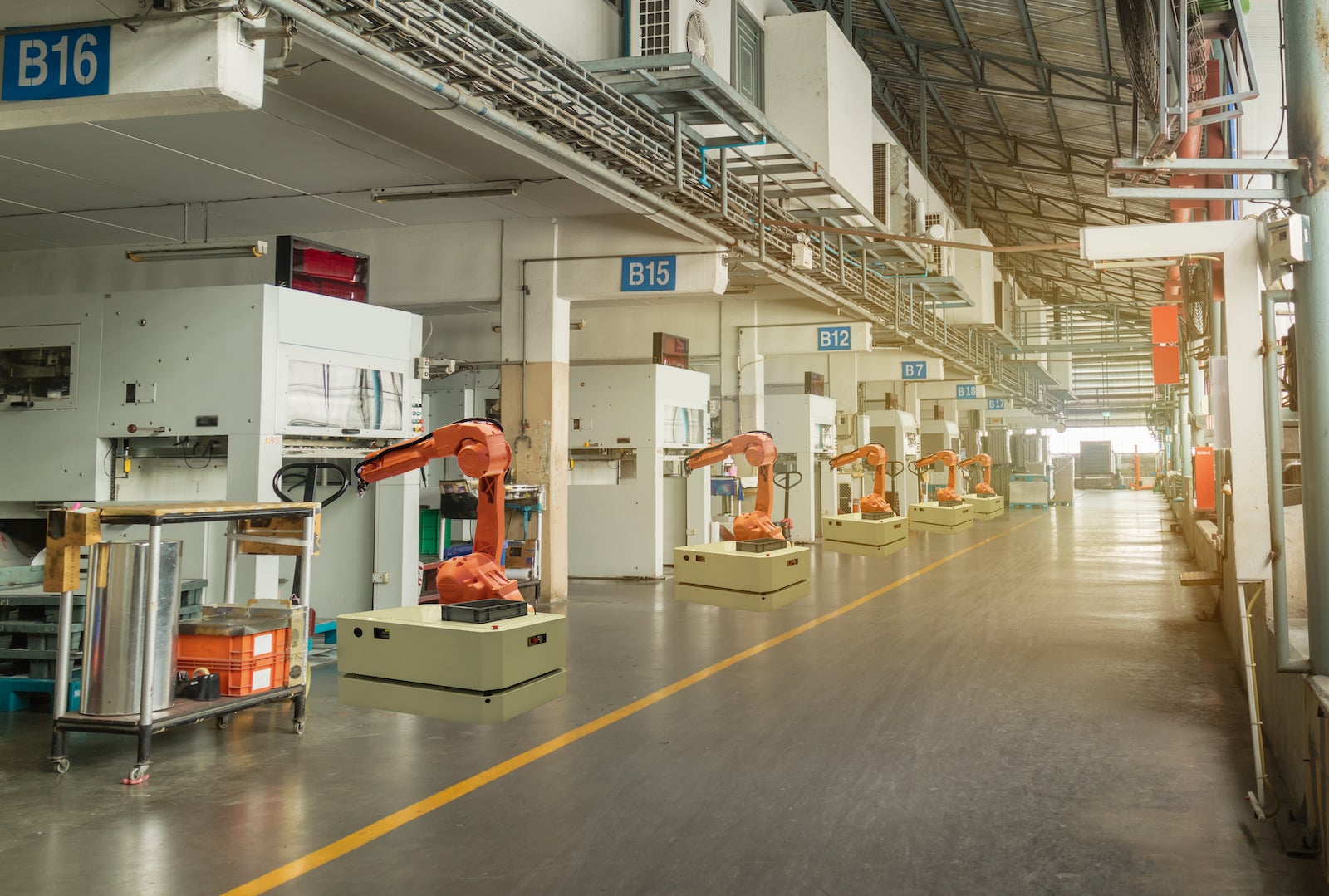Here’s how Thailand’s manufacturing industry is shaping the future of robotics and automation
When cars were first introduced to Thailand at the beginning of the 20th century, there were only 300 of them on Bangkok’s newly built modern roads. Fast-forward to today, Thailand is home to a high concentration of automotive companies, which manufacture around 2 million cars a year.


When cars were first introduced to Thailand at the beginning of the 20th century, there were only 300 of them on Bangkok’s newly built modern roads. Fast-forward to today, Thailand is home to a high concentration of automotive companies, which manufacture around 2 million cars a year.
Automotive manufacturing is one of the key industries driving growth in automation and robotics. With Thailand 4.0, the government’s plan to embrace an innovation-driven economy, the country is now poised to build on its existing expertise by investing in the robotics revolution to become a pioneer in tomorrow’s automation-driven future.
Generous incentives to boost private investments in robotics
A central goal of the Eastern Economic Corridor (EEC), Thailand’s $45 billion infrastructure development project, is to foster growth in targeted industries (such as robotics and automation) through the development of modern logistics system, ecosystem, smart cities and human resources. To advance this sector, in 2017 the Thai government said it would invest $6 billion in a robotics development plan, which included the creation of centers dedicated to robotics innovation. The International Federation of Robotics identifies Thailand as an important and growing market for robotics. Not only do manufacturers purchase up to 4,000 industrial robots a year but the manufacturing industry also continues to grow at a rapid clip.
To further boost Thailand’s embrace of robotics and automation, the Thai government has addressed both the demand-and supply-sides of the robotics industry by designing incentives to create the right investment ecosystem in the kingdom. On the demand side, the country aims to encourage existing investment projects to use robotics and automation. Not only can they upgrade their production efficiency, but they will also benefit from a three-year waiving of corporate income taxes when the tax exemption cap does not exceed 50% of the investment capital. Companies are also eligible for import duty exemptions for machinery.
On the supply side, companies that invest in business activities related to the robotics and automation industries and technologies, including conceptual design solutions, engineering design, system integration, and manufacturing will benefit from up to eight years of tax holidays, exemption of import duties on machinery and raw material for export production, and additional tax exemption for those involving in R&D and human resource development. Those investing in robotics and automation in the EEC area, namely in the provinces of Chonburi, Rayong and Chachoengsao, will be granted up to 13 years of corporate income tax exemption. Furthermore, investors will be able to bring in expatriates with ease and have right to own land.
To motivate companies to invest in Thailand, the government offers generous incentives to technology visionaries who will help automate Thailand, whether by investing, nurturing new talent and conducting R&D. Robotics giants like ABB (Switzerland), KUKA Robotics (Germany), and Nachi Technology (Japan) have already expanded their operations in Thailand.
“Setting up ABB in Thailand as the hub that supports neighboring countries is one of the most successful strategic moves that we made,” said Chaiyot Piyawannarat, country managing director of ABB Thailand, Myanmar, Cambodia and Laos.
Investing in the next generation of robotics innovators
Alongside Thailand’s embrace of corporate robotics innovation, the country is also witnessing a growing public interest in robotics education and training. A camp dedicated to robotics has taught children as young as ten-years old to build their own robots. Meanwhile, Bangkok’s Institute of Management has opened its Innovation Center for Robotics and Automations Systems, which offers specialist degrees in order to meet the rising demand for the global-class talent to lead the country’s robotics and automation revolution. Also, Thailand will host the World Robotics Olympiad 2018 in November.
Thai tech talent already dominates the market: In 2015 alone, 76 universities and 83 vocational schools produced over 82,000 graduates in engineering and related fields. Those numbers keep rising with new institutions. Likewise, Thailand is eager for more robots and people who understand them: Research shows that half of companies in Thailand are ready to adapt their manufacturing process to use automation and robotics within one to three years. Thus, these companies will have access to a large group of high-skilled talent.
Much more automation to come
The Thai government is committed to building Thailand 4.0 through a variety of governmental support programs and policies designed to build the automation ecosystem of the future. This will enhance the growth of the robotics market in Thailand and generate more demand for robotics and automation to come.